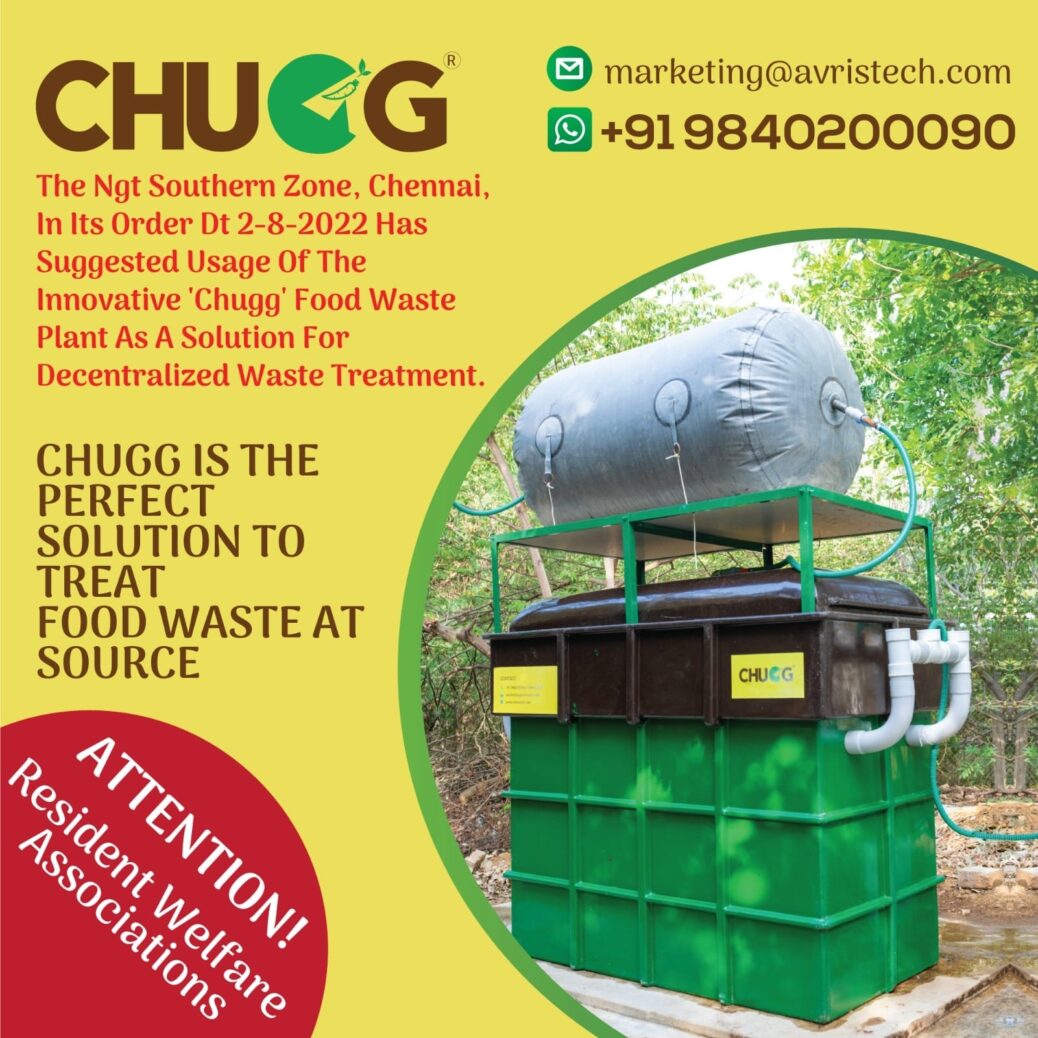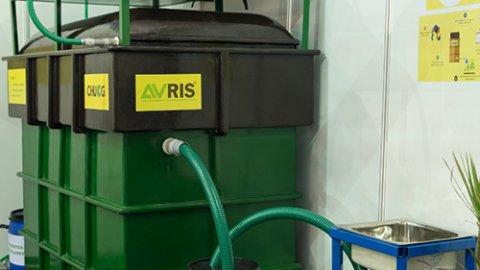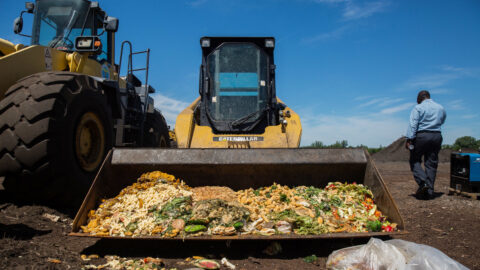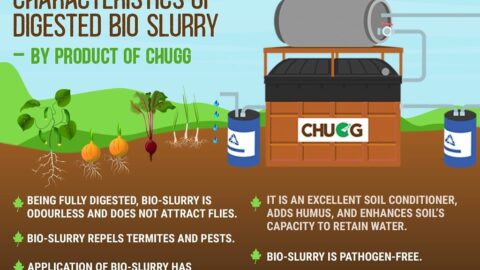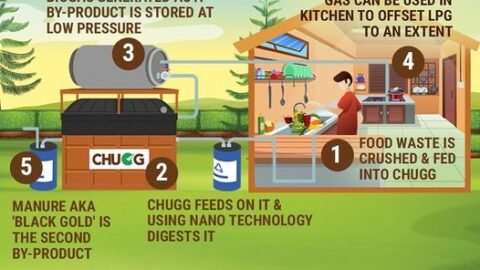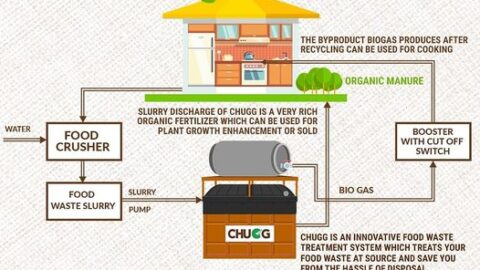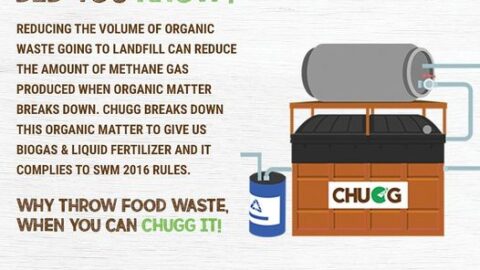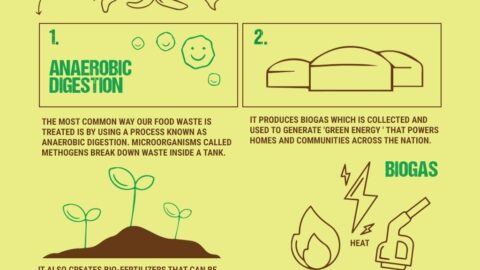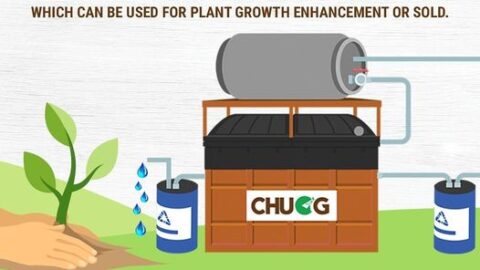In today’s environment-first world, household waste management has become more important than ever. Proper waste management not only contributes to cleanliness and hygiene of our environment but also plays an important role in preserving natural resources and reducing pollution. This article offers practical tips and tricks to help you manage your household waste more effectively, and have a positive impact on the environment.
Proper household food waste management is crucial for a sustainable future, and one of the most common contributors to waste is food waste. New technologies such as the CHUGG food waste system have emerged as effective solutions to address this issue. In this article we will explore how you can best manage your household waste using the CHUGG system, with a particular focus on food waste processing.
1. Introduction
Proper household waste management is essential for a sustainable future. Efficient waste management is essential to reduce the environmental footprint of our daily activities. By adopting simple habits and making conscious choices, you can significantly reduce your carbon footprint and contribute to a cleaner, healthier environment. By tackling food waste, we can significantly reduce the amount of waste sent to landfills, conserve resources and contribute to a cleaner and healthier environment.
2. To understand the types of household waste
To properly manage your household waste, it is important to understand the types of waste that occur. Categorize your waste into recyclable, organic, and non-recyclable waste. This will help you have a specific weed management plan for each type of weed. Food waste management requires proper handling and disposal of food scraps and leftovers. When food waste ends up in landfills, it decomposes and releases greenhouse gasses, contributing to climate change. It is therefore important to find sustainable ways to manage food waste.
3. Reduce, recycle, and recycle
The three Rs-Reduce, Reuse, and Recycle are the basic principles of waste management. Reduce your waste by making mindful purchasing decisions, avoiding one-time use items, and choosing low-packaging options. Whenever possible, recycle items like cutlery, bottles and furniture. Properly separate paper, plastic, glass, metal and other materials and recycle through local recycling centers.
4. Organic compost
Organic waste can be produced, such as fruit and vegetable peelings, coffee grounds and fruit pulp. It not only decreases the quantity of waste dumped in landfills but also produces soil that is rich in nutrients for your plant. Start a compost system in your backyard or consider using a compost bin or worm farm for indoor composting.
Introducing CHUGG- A patented Food Waste Management System
The CHUGG Food Waste Management System is an innovative technology designed to efficiently manage food waste and turn it into a value-added product. It uses a combination of mechanical and biological processes to break down food waste, reduce its volume, and turn it into compost or bioenergy.
Benefits of using the CHUGG system
Waste reduction: The CHUGG program can significantly reduce the amount of food waste generated by households, thereby reducing the amount of waste sent to landfills
Recycling: Through a treatment process, the CHUGG system converts food waste into compost, which can be used for landscaping in gardening or landscaping. Alternatively, it can also provide biogas that can be used in a variety of applications.
Environmental Sustainability: By diverting food waste from landfills and harnessing its potential, the CHUGG program contributes to greenhouse gas emissions are reduced and natural resources are conserved
Implementing the CHUGG System in Your Household
Recycling food waste has never been easier! You can now transform your kitchen leftovers into something useful while doing your part for the environment. With Avris’ innovative CHUGG food waste treatment system, you can say goodbye to the hassle of waste disposal and hello to sustainable living.
So, what can you recycle with the CHUGG system? Well, the answer is quite simple: almost everything! From vegetable waste to starchy or sugary fibrous waste, meat, onions, eggs, citrus fruits, and any other food waste you have on hand. Just make sure to crush and mix the waste with water before feeding it into the CHUGG system.
Here’s how it works: the crushed food waste is placed into a sealed chamber where it digests in the absence of air. As it breaks down, the waste releases a gas that can be captured at low pressure. This gas can then be used as fuel for cooking, providing a clean and sustainable energy source. Not only that, but the remaining waste is transformed into organic manure, perfect for enriching your garden or landscaping projects.
Avris offers a range of bio-digesters, including the CHUGG system, designed to cater to various needs. Whether you’re in the food manufacturing industry, a hotelier, a restaurant owner, or part of a gated community, Avris has got you covered. Their team of experts can conduct a food waste audit to help you manage waste efficiently without harming the environment.
You might be wondering how much biogas the CHUGG system can produce. Well, it depends on the size of the system you install. On average, CHUGG can produce 4 cubic meters of biogas from 75 kilograms of organic food waste. That’s quite impressive, isn’t it?
So, why wait? Join the eco-friendly revolution and start recycling your food waste with the CHUGG food waste treatment system from Avris. Say goodbye to waste disposal headaches and hello to a greener future. Together, we can make a difference!
Additional Tips for Effective Food Waste Management
To complement the use of the CHUGG Food Waste Treatment System and further enhance waste management in your household, consider the following tips:
Practice Smart Shopping: Plan your meals, make a shopping list, and buy only what you need to minimize food waste.
Proper Storage: Store perishable items correctly to extend their shelf life and reduce the likelihood of spoilage.
Meal Planning: Prepare meals using leftover ingredients and prioritize consuming food before it reaches its expiration date.
Composting: If you have a garden or outdoor space, consider implementing a composting system to manage other organic waste besides food scraps.
For better waste management
- When shopping, choose ones with durable packaging. Look for products made from recycled materials or biodegradable or easily recyclable packaging. By supporting eco-friendly packaging, you help reduce waste and promote the circular economy.
- Traditional cleaners often contain harmful chemicals that can harm the environment. Switch to eco-friendly alternatives made from biodegradable, toxic and non-toxic materials. Not only are these products safe for the environment, but they also keep you and your family healthy.
- Some household items, such as batteries, electronics, and expired medicines, are considered hazardous waste. These should never be thrown in the regular trash or washed down the drain. Research local guidelines and find designated drop-off or recycling areas to ensure hazardous waste is disposed of safely.
- Instead of throwing away items that are still usable, consider donating them to local charities or organizations. You can also find other ways to refurbish or recycle old items, giving them a new life and reducing waste.
- Effective waste management requires a concerted effort. Educate your family members about the importance of reducing waste and engage them in sustainable practices. Encourage them to follow recycling guidelines, indulge in composting, and make conscious purchasing and disposal choices.
- Many communities have developed recycling programs and programs. Take advantage of these opportunities to dispose of your waste responsibly. Learn about local recycling centers, collection programs, or curbside recycling programs in your area.
Conclusion
Proper management of household waste, especially food waste, is critical to environmental sustainability. By using the CHUGG food waste treatment system and following recommended waste management practices, you can significantly reduce your carbon footprint and contribute to a cleaner, healthier planet.

